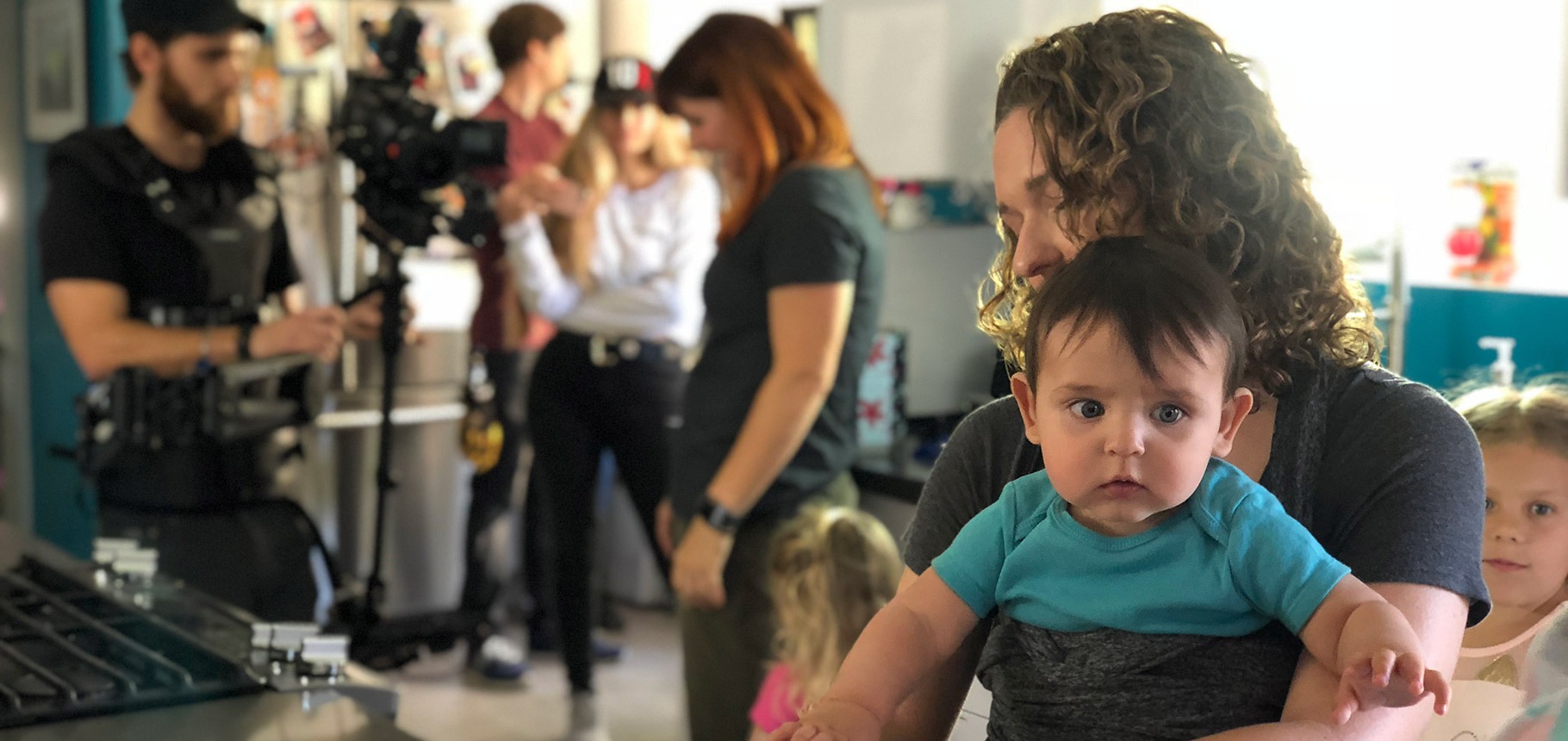SceneMaker
We help young actors learn grow shine

When I first got my son into acting, I wasn’t dreaming of red carpets or Oscar speeches. I was just a parent, constantly hearing, “He’s so cute; he should be in movies!” or “I’d buy anything from that kid!” My wife had been on bed rest throughout her pregnancy, followed by severe postpartum depression, and I thought, “Why not give acting a shot? At the very least, it’ll get us all out of the house.” He was just 7 months old when we booked his first gig—a short film for $100. I hadn’t considered “is my child ready for acting?” It was something that felt right, for us, for that moment. Somehow, that decision turned into a long-term adventure. Now he’s six years old with 55 film and commercial credits, and still going.
If you’re reading this, you might be standing at the same crossroads I was back then: Is acting the right path for your child? Whether this is your child’s idea or your own, this article will help you answer that question by looking at key factors like your child’s passion, personality, resilience, and schedule. Let’s dive in and see if your little star is ready for the spotlight.
Some kids are born performers, while others are shy or introverted (and that’s okay). If acting is your idea, ask yourself:
If it’s your child’s idea, here are some signs they may genuinely love acting:
That’s okay too. Sometimes kids don’t know they’ll love something until they try it. Start small—enroll them in a local class or submit for a simple audition to gauge their reaction. Try to explain “acting” in their own terms. It’s hard for a 4-year-old to understand what being rich and famous means. They may respond more to an idea like, “Acting is like playing pretend games, but with costumes and cameras. You get to be a superhero or a princess, and people watch you on TV!”
Check out our guide on “Sparking Your Child’s Interest in Acting” for tips on motivating your little one.
Kids enter acting at all ages, so the challenges they face will vary. My son started as a baby. At that age, rejection wasn’t even an issue for him. I was the one who got excited about possible roles and disappointed when he didn’t land them. By the time he understood the process, he was used to how things work and saw casting decisions as a logistical part of the industry—not a personal failure. That’s changed a bit as he’s gotten older. Sometimes he gets hopeful about a really fun role (like a recent one where he would have played with Legos) and sad when production chooses someone else. We talk about it and I remind him it’s part of the process.
TIP: Build resilience early by framing rejection as part of the adventure. Teach kids that “no” today doesn’t mean “no” forever.
Here’s how you can gauge resilience at any age:
Read our article, "Handling Rejection for Child Actors" for strategies that keep the process fun!
Acting, particularly when a child’s career starts to take off and they’re landing more roles, will require a serious time commitment. They have to film self-tapes to include with initial submissions, then if asked, they must record one or two rounds of auditions and possibly more for call backs. Often they must meet with producers and directors virtually or in person, or participate in table reads, wardrobe fittings, and rehearsals. This all requires becoming familiar with scripts, memorizing lines, and practicing. And that’s all before day 1 of shooting! You have to balance these time requirements with other commitments and personal needs.
Is your child ready to sacrifice their free time to pursue acting? Are you ready to rearrange your schedule to make it happen?
Don’t miss the next article in our Quickstart series, “Are YOU Ready to Parent a Child Actor?” where we break down the family-wide commitment this career requires.
Missing school for auditions or jobs is common for child actors, but it requires planning:
Read “Balancing School and Acting” for practical tips to keep your child on track academically.
Whether your child is begging to act or you’re testing the waters like I did, the decision to start acting is a big one. Look for signs of interest, resilience, and a willingness to commit time. And remember: This is just the beginning of the journey.
Think your child is ready for acting? The next question is, are YOU ready to parent a child actor? Find out in our next post, “Are YOU Ready to Parent a Child Actor?”
We won't send you a puppy, but our SceneInsider newsletter is just as good! You get insider tips, industry news, and expert advice tailored just for you, plus first access to online events like webinars and private StarSupporter™ chats before they sell out. Join the conversation!
Go! Make A Scene! is a community empowering young talent to shine with confidence, offering real-world guidance, tools, info, and inspiration to help them reach their dreams while staying true to who they are. For the parents nurturing tomorrow’s stars, we’re here to support you, so together, we can help those stars soar even higher.
Go! Make A Scene! is…
Please report any errors, omissions, or DMCA violations by contacting us.
Copyright GoMakeAScene! ©2024. All rights reserved. Privacy Policy | Terms and Conditions
Why are you considering getting your child into acting? Is it their dream—or yours? Share your story in the comments below!